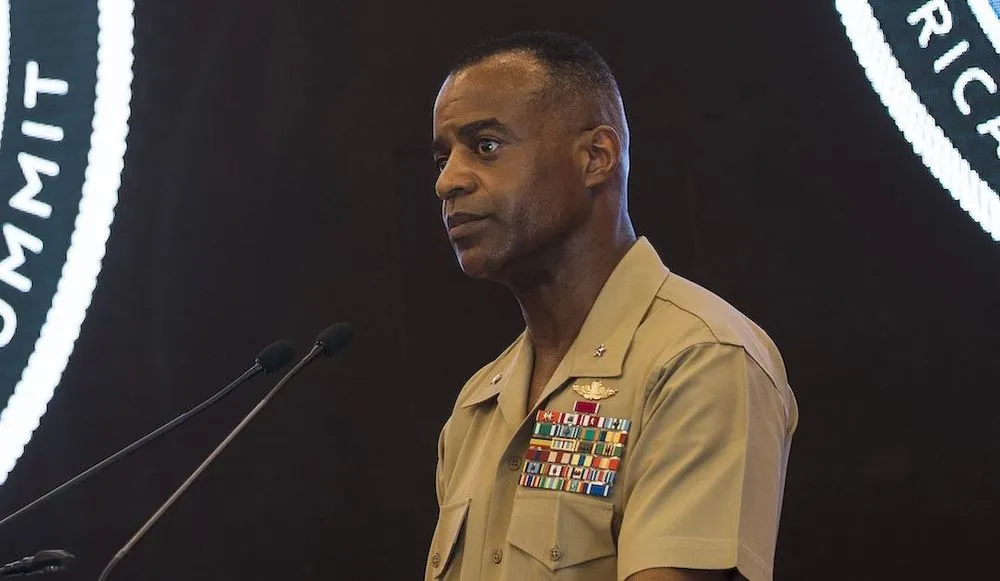NSA official is expected pick for Marines information job, as Corps handles backlog of leadership moves
President Joe Biden is expected to pick a recently installed National Security Agency official to be the U.S. Marine Corps’ next deputy commandant for information, according to two people familiar with the decision.
Maj. Gen. Melvin “Jerry” Carter will be responsible for developing and overseeing all of the service’s policies and strategies about how to use information to carry out its doctrine.
Carter is currently the NSA Cybersecurity Directorate’s deputy director for combat support. In that role he is responsible for safeguarding sensitive information on U.S. national security systems and wiping out threats from foreign hackers.
It’s unclear when the White House might formally announce Carter’s nomination, but the two sources — who requested anonymity to speak freely about the decision — believe it could happen soon, as the Marine Corps labors to overcome the impact of a senator’s blockade of nominees for senior military positions for much of last year.
Sen. Tommy Tuberville (R-AL) held up nominations for about 10 months to protest a Defense Department policy that covers the costs for military personnel to travel to seek an abortion. He eventually relented in December under bipartisan pressure, but the backlog of appointments rippled throughout the armed services — especially in the Marine Corps’ information and digital missions.
For example, Maj. Gen. Joseph Matos assumed the reins at Marine Corps Forces Cyberspace Command in March. His predecessor, now Lt. Gen. Ryan Heritage, was originally nominated to be the service’s next top information officer. But in April it was announced Heritage instead would become the director of operations at U.S. Cyber Command.
In Carter’s case, he was supposed to take his post at NSA earlier last year but didn’t until the end of 2023 — becoming only the second military officer to serve in the role and receiving his second star in January.
His predecessor at NSA, Lt. Gen. Lorna Mahlock — who assumed command of Cyber Command’s elite Cyber National Mission Force that same month — was similarly delayed by Tuberville’s blockade.
The officer who currently serves as the Marines’ deputy commandant for information, Lt. Gen. Matthew Glavy, is expected to retire instead of moving up into the Corps’ overall No. 2 job, according to sources.
Relatively new position in the Corps
If nominated, and confirmed by the Senate, Carter would become the third DCI since the office was established in 2017. He would also be the first leader who did not previously helm the service’s digital warfighting branch, which is located at Fort Meade, Maryland, along with Cyber Command and the NSA.
Carter, who enlisted in the Marine Corps in 1985, has served in a lengthy list of intelligence posts, including in Afghanistan.
Before joining the cybersecurity directorate, he was deputy chief of Computer Network Operations at NSA.
The Pentagon, Marine Corps and NSA declined to comment for this story.
Martin Matishak
is the senior cybersecurity reporter for The Record. Prior to joining Recorded Future News in 2021, he spent more than five years at Politico, where he covered digital and national security developments across Capitol Hill, the Pentagon and the U.S. intelligence community. He previously was a reporter at The Hill, National Journal Group and Inside Washington Publishers.



